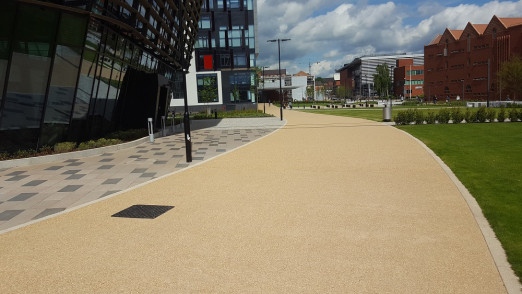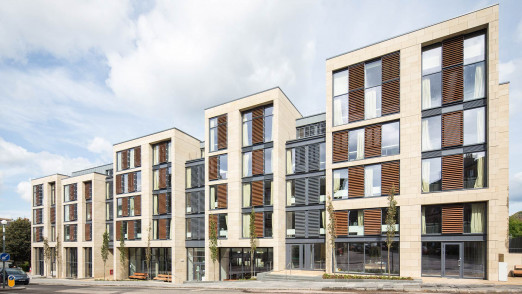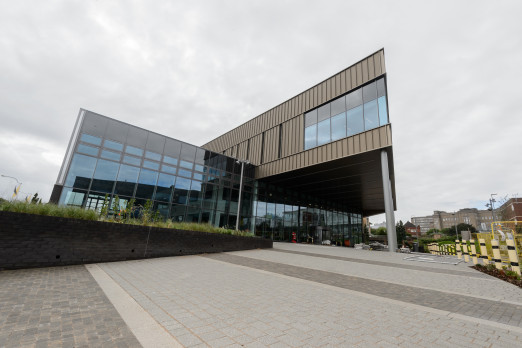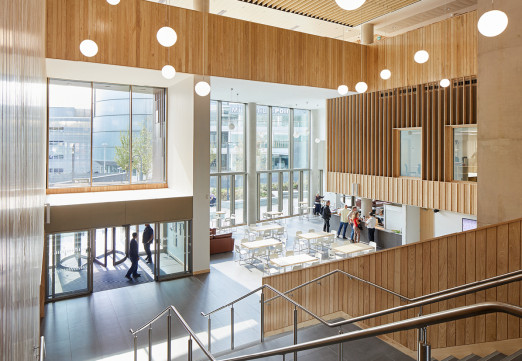Aggregate Industries has partnered with BASF Construction Chemicals to create a suite of Environmental Product Declarations (EPD) to provide clients with detailed information on the environmental impact of its ready-mixed concrete, and encourage the implementation of sustainable solutions.
Sustainability and the reduction of environmental impact are core issues within the construction industry. This is seen as producers and contractors alike are increasingly being expected to preserve natural resources while continuing to produce quality products, and are therefore searching for construction methods, practices, and products that will promote these objectives.
Cementing its position as a leading provider of sustainable solutions, Aggregate Industries has launched three EPD for specialist ready-mixed concrete products: AgiliaTM, WatertightTM and DiamondcreteTM.
The EPD, published by the Institut Bauen und Umwelt (IBU), are based on life cycle assessment (LCA) calculations using BASF’s life cycle analysis tool that allows Aggregate Industries / BASF to quantify the environmental impact of specialist and conventional concrete mix designs and compare the eco-efficiency of different concrete mixes.
Called the Life Cycle Analyzer, the tool was developed by BASF Construction Chemicals to enable concrete producers and specifiers to demonstrate compliance in line with the European Standard BS EN 15804:2012 Sustainability of construction works – Environmental product declarations – Core rules for the product category of construction products. The standard defines the structure for construction product EPD and outlines how the data used is verified.
Using this unique tool enables Aggregate Industries to calculate indicators such as global warming potential (CO2), renewable energy consumption, acidification potential and the cost impact of different concrete mix designs. The calculation includes an assessment of the production stage only (cradle-to-gate) or a full life-cycle assessment of concrete (cradle-to-grave). The latter includes production, transportation to site, maintenance (potential painting and cleaning) and (potential) replacement cycles, end-of-life and (potential) recycling / recovery options. These stages are demonstrated according to the system boundaries of EN 15804.
A major advantage of the Life Cycle Analyzer is that the tool can be used to assess the environmental parameters for different concretes in order to optimize processes and mix designs, without compromising on concrete quality. The development of the tool is significant because concrete is the most commonly used man-made construction material.
Using the tool, Aggregate Industries will be able to vary concrete mix designs and simultaneously compare the impacts of using different constituent materials on both the environment and costs. The tool also supports Aggregate Industries in improving process efficiency, energy and resource saving and fulfilling enhanced quality specifications.
Once the optimum mix has been selected the tool enables users to produce a and EPD that will provide the basis for input to green building rating systems such as BREEAM.
Donna Hunt, Head of Sustainability at Aggregate Industries said, “With our products found in houses, buildings, roads, railways, ports, power stations and much more we are committed to making a positive contribution to the built environment now and for future generations. We exhibit leadership in our sector by developing and launching innovative products and services, providing our clients with sustainable solutions to a wide range of issues such as resource consumption and reuse, transportation, water management, climate change and carbon management. Aggregate Industries was the first construction materials company in the world to achieve BRE BES 6001, and by also providing third party verified EPD that are specific to our products we are enabling our clients to make sustainable design and purchasing decisions.“





